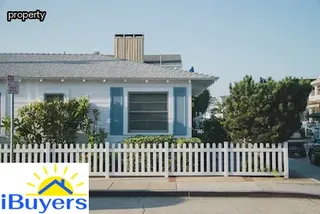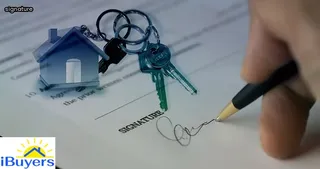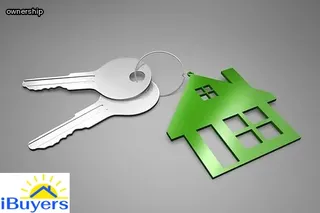When it comes to transferring ownership of a house in South Carolina, it is important for individuals to understand the laws and requirements associated with completing a quitclaim deed. A quitclaim deed is a legal document that allows an individual to give up their rights or interest in a piece of property, such as a house.
The state of South Carolina requires certain information and paperwork to be included in the quitclaim deed in order for it to be legally accepted. This article provides an overview of the laws and requirements involved in completing a South Carolina Quit Claim Deed for your house, including identifying all parties involved, properly filling out the form, notarizing the document, recording the deed at the county register office, and obtaining copies of the deed.
It is important that individuals understand all steps required to complete this process correctly so they can ensure their ownership transfer is valid under South Carolina law.

A quit claim deed in South Carolina is a legal document that transfers ownership of real estate from one party to another. This type of deed is different from other types of deeds, such as warranty deeds and special warranty deeds, which provide assurances to the buyer regarding the title or rights to the property.
A quit claim deed does not guarantee any warranties about the title or rights; instead, it simply transfers whatever interest the grantor has in the property at the time of transfer. It's important to understand these differences when transferring ownership of your house with a South Carolina Quitclaim Deed.
Completing a Quitclaim Deed requires several steps like understanding state laws, completing all forms correctly, having it signed by both parties and filing with the county recorder's office. Knowing what needs to be done can help make this process smoother and ensure everything is done properly.
A South Carolina Quitclaim Deed is an important document for transferring property ownership. It is a legal document that relinquishes all claims of ownership from the grantor to the grantee.
This step-by-step guide helps you understand why and when you should use a South Carolina Quitclaim Deed to transfer your house, and how to complete it correctly. You must first determine if the deed is the best option for your situation.
Then, you will need to gather information such as the names and addresses of both parties involved in the transaction, along with any details regarding the property itself, such as its address, description, and any liens attached to it. Once all of this information is gathered, you can fill out and sign the quit claim deed form according to specific instructions provided by each county in South Carolina.
Finally, make sure that two witnesses sign the document before submitting it for recording at your local county recorder’s office. With these steps properly followed, you can successfully complete a South Carolina Quitclaim Deed for your house.

A South Carolina Quitclaim Deed can provide a number of important benefits. For example, it is an effective way to transfer ownership of real property quickly and easily.
Additionally, it is a cost-effective process since there are no associated fees or costs for filing the deed with the county register of deeds office. Furthermore, because the quitclaim deed does not involve any type of title search, there is less risk involved in transferring ownership of property.
Lastly, a quitclaim deed helps to ensure that all parties involved in the transaction are clear on who owns the real estate being transferred and it allows for any potential issues related to title to be resolved before the transaction is finalized.
Completing a Quitclaim Deed in South Carolina is an important step to take when transferring ownership of real property. A Quitclaim Deed is a legal document that transfers the rights and interests of a grantor (person selling) to the grantee (person buying). In order for the transfer to be valid, the deed must meet certain requirements set by South Carolina law.
This article provides a step-by-step guide on how to properly execute a valid South Carolina Quitclaim Deed for your house. First, obtain a pre-printed Quitclaim Deed form from an office supply store or online source. Second, complete all required fields on the form and ensure that all information is accurate and up to date.
Third, sign the form in front of two witnesses who are over 18 years old and who are not related to you or the other party. Fourth, have each witness sign and print their name next to their signature. Fifth, have the deed notarized by a Notary Public or other authorized individual in your area.
Finally, make sure to keep your original deed and provide copies to those involved in the transaction. Following these steps will ensure that your Quitclaim Deed is valid under South Carolina law and will help protect you from any future disputes regarding title or ownership of your house.

Drafting and completing a South Carolina Quit Claim Deed for your house can be a complicated process, but following these tips can help make the process smoother and ensure the deed is legally valid. Begin by researching laws that govern quit claim deeds in South Carolina to ensure you understand any relevant regulations.
Once you have a good understanding of your state's laws, find a form that meets the specific requirements of your situation. To fill out the form, make sure to include accurate information about both parties involved in the transaction as well as any legal descriptions or details regarding the property.
Then, both parties must sign the document before it can be notarized. After it has been notarized, you will need to file it with the Register of Deeds in your county so it becomes part of public record.
Following these steps can help make sure that your South Carolina Quit Claim Deed is correctly completed and legally binding.
Filing a South Carolina Quitclaim Deed allows you to quickly and effectively transfer your house from one owner to another. Understanding the process for filing this document is important for ensuring that the deed is properly completed and accepted by the county office.
In this article, we will explore the steps necessary for completing a South Carolina Quitclaim Deed. First, you will need to obtain a blank quit claim deed form from your county's clerk of court office or website.
Once you have this form, be sure to fill it out completely and accurately; including the grantor and grantee information as well as any additional information requested on the form. Additionally, if you are transferring ownership of your house with someone else, both parties will need to sign in front of a notary public.
After all information has been filled out correctly, make two copies of the signed and notarized deed before submitting it to your county's records office with the applicable filing fee. Following these steps ensures that filing your quit claim deed in South Carolina is done correctly and efficiently, allowing for a smooth transition of property ownership.

When exploring the different options for obtaining a sample South Carolina Quitclaim Deed, it is important to consider the necessary steps involved. Obtaining a Quit Claim Deed can be done by filing with the Register of Deeds in your county.
In order to complete a Quit Claim Deed in South Carolina, you must include specific information such as the grantor and grantee names, address, legal description of the property, and signatures from all parties involved. Additionally, it is essential to know that there are specific notarization requirements for completing a Quit Claim Deed in South Carolina.
After preparing and signing the deed, it must be recorded at your local Register of Deeds office. Understanding these steps is key when completing the process of obtaining a Quit Claim Deed for your house in South Carolina.
If you're looking to complete a South Carolina Quit Claim Deed for your house, downloading and using a free template can make the entire process much simpler. To begin, access a reputable website that offers free real estate forms and templates, such as LawDepot.
com or RocketLawyer.com.
Search for a South Carolina-specific Quit Claim Deed template and download it onto your computer in an easily accessible folder such as the desktop or documents folder. Next, open the file and read it carefully in order to understand all of its components including language and information needed for completion.
If you have questions about any part of the form, consult a local real estate attorney or title company for assistance. Once you are ready to fill out the form, enter all necessary information regarding the property being transferred such as address, legal description and deed reference number.
All parties involved must sign the form in front of a notary public before submitting it to your county clerk's office for filing. With careful review and attention to detail, completing a South Carolina Quit Claim Deed is easy with a free template available online.

A South Carolina Quit Claim Deed is a commonly used form for transferring real estate ownership from one person to another. It involves the transfer of title rights, and can be completed step-by-step by following a few key instructions.
The first step is obtaining the deed form, which can be obtained from the South Carolina Department of Revenue Office or any local county recorder's office. Once you have the form, it must be completed with the necessary information including names of grantor and grantee, property address and legal description, and other pertinent details such as warranties and covenants included in the deed.
After the form is filled out correctly, it needs to be notarized before being recorded with the County Clerk's office in order to complete the process. Knowing how to properly fill out a South Carolina Quit Claim Deed is essential when transferring real estate from one party to another in this state.
Understanding each step in completing this form ensures accuracy and helps ensure that all requirements are met for successful completion of a transfer of ownership.
Using an app to process a South Carolina Quit Claim Deed for your house has many benefits. For starters, it makes the process much simpler and faster than if you were to do it manually.
An app streamlines the data entry so that all of the information is collected quickly and efficiently. Additionally, having an app guide you through each step prevents any costly mistakes or delays that might occur when completing the deed without assistance.
Furthermore, many apps offer helpful features such as automated form-filling, online payment options, and a secure filing system to ensure all documents are securely stored and easily accessible. Lastly, an app can be used from any device with an internet connection so you can work on your quit claim deed from anywhere at any time.

When choosing a property location, it is important to consider several factors. The local economy should be taken into account, as well as the safety and security of the area.
You should also research whether or not the neighborhood has good schools, recreation centers, and other amenities. Additionally, you should check on the tax laws in that particular state or county because they can vary significantly from place to place.
Finally, you should consider how far away your new home is from work and other places of importance. All these factors will play an important role when completing a South Carolina Quit Claim Deed for your house.
Creating and using a Quitclaim Deed in South Carolina is an important step in the process of transferring property ownership. A Quitclaim Deed allows a transferor to relinquish all rights, title, and interest in real estate to a transferee.
This guide will provide step-by-step instructions on how to create and use a Quitclaim Deed in South Carolina. First, you must obtain the necessary paperwork from your local county recorder's office.
Second, you must fill out the form with the following information: name of the grantor (transferor) and grantee (transferee), legal description of the property being transferred, signature of both parties and witnesses if required, notarization by an authorized notary public. Third, you must submit the completed form to your county recorder's office for recording.
The Quitclaim Deed will become effective upon receipt by the county recorder's office. Finally, you will receive proof of recording from your county recorder's office as well as any applicable fees that were paid upon submission.
Following these steps will ensure that your Quitclaim Deed is properly created and recorded in South Carolina.

Completing a South Carolina Quit Claim Deed for your house can seem like an intimidating process, but with the right information and guidance, it doesn’t have to be. Before beginning the quit claim deed process, you need to understand the basics of what this document is and how it works.
A quitclaim deed is used to transfer ownership rights from one person to another without providing any warranty or guarantee as to who holds title. In South Carolina, all parties must enter into an agreement in writing and sign the document before a notary public.
Furthermore, all parties must provide proof of identification and should obtain a copy of the executed document for their records. Additionally, it's important to understand that you will need to pay a filing fee at the county recorder's office when submitting the completed form.
If not done properly, your quit claim deed could be invalidated by the courts; thus, make sure you use an accurate legal description that matches with public records. To make sure your South Carolina Quit Claim Deed goes through quickly and accurately, follow these steps—obtain necessary documents, fill out forms correctly and completely, sign in front of a notary public and submit forms at County Recorder’s Office.
With this essential information at hand, completing a successful Quit Claim in South Carolina doesn't have to be overwhelming or complicated.
quitformslegal is an online resource that makes it easier for South Carolina residents to complete a quit claim deed for their home. This helpful service provides step-by-step instructions to aid the user in understanding the process and completing the form correctly, as well as providing downloadable forms and FAQs.
With quitformslegal, users can be sure they are getting accurate information regarding completion of a SC quit claim deed without having to consult with a lawyer or other professional. The site also offers helpful advice on filing deadlines and other important considerations that should be taken into account when going through this process.
In addition, quitformslegal offers tutorials and videos to walk users through each step of the process so they can confidently move forward with completing their SC Quit Claim Deed.

Are you looking to transfer the title of your house in South Carolina with a Quit Claim Deed? If so, you'll need to get all the required legal forms for a successful Quit Claim Deed (QCD) at one place. Browse our legal forms and get everything you need to complete your QCD.
Our forms include step-by-step instructions and all the necessary documents for transferring a property through a Quit Claim Deed in South Carolina. We have everything from the application form to the deed itself, making it easy to complete all the paperwork quickly and accurately.
Plus, our forms are available online, so you can start the process in minutes and have all of your documents ready in no time! Get started today by browsing through our legal forms and find all that you need for your South Carolina Quit Claim Deed!.
When it comes to completing a South Carolina Quit Claim Deed (SCQCD) for your house, there are a few important things to consider before signing it in order to ensure that it is legally binding. First, make sure the deed is properly notarized by a qualified notary public and indexed at the courthouse of the county where the property is located.
Also, check that all parties listed in the deed are identified correctly and include their full names and addresses. You should also confirm that all dates and legal descriptions on the deed are accurate.
Lastly, review all other sections of the document thoroughly such as any special conditions or restrictions in order to ensure that they match your wishes and intentions. Once you have taken these steps, you can be confident that your SCQCD will be legally binding when signed.

If you are considering transferring ownership of your South Carolina property, you may wish to complete a South Carolina Quit Claim Deed (SCQCD). This deed is used when the owner of the property wishes to transfer their interest in the property to another individual or entity.
It is important that you understand how to properly complete an SCQCD so that it meets all legal requirements and is enforceable. Consulting with an expert can help answer any questions you may have regarding the process and ensure your deed is properly executed.
An expert can provide guidance on filling out the deed, understanding potential tax implications, proper notarization, filing requirements, and more. With assistance from an experienced professional, you can be confident that all aspects of your SCQCD are completed correctly.
Don't go through this process alone--consult with an expert today for answers to all your questions regarding the SCQCD!.
Ensuring you fill out the correct form for the right purpose is essential when completing a South Carolina Quit Claim Deed for your house. Without knowing which forms to use, there can be costly mistakes and mishaps.
It is important to determine if you need a quitclaim deed or a warranty deed when transferring ownership of property in South Carolina. A quitclaim deed is used when transferring property between family members or other individuals where no money changes hands; this deed does not guarantee that the title to the property is free from defects.
On the other hand, a warranty deed guarantees that the seller has good title to the property being conveyed and it also provides protection against any claims of past owners. It is especially important to understand which type of deed should be used when selling or buying a house in South Carolina.
The steps necessary to complete a South Carolina Quit Claim Deed are relatively straightforward; however, it can be easy to make mistakes if all due diligence is not taken into account during the process. When filling out this document, it’s critical to include all necessary details such as legal name of grantor and grantee, physical address of property being transferred, signature of grantor, date of transfer and more.
Furthermore, it’s essential that all parties involved sign and date all copies of the form before submitting them with your local county clerk office for recording purposes.
No, you do not need an attorney for filing a Quit Claim Deed in South Carolina. A Quit Claim Deed is a legal document used to transfer ownership of real property from one person to another.
This step-by-step guide will provide instructions on how to complete a South Carolina Quit Claim Deed for your house without the help of an attorney. All necessary forms must be completed and signed by all parties involved in the transfer of the property, and should include signatures witnessed by two people or notarized.
Also, make sure to record the deed with the Register of Deeds office in the county where you live. By following these steps and using this guide, individuals can successfully complete a South Carolina Quit Claim Deed without needing to hire an attorney.

Filing a quit claim deed in South Carolina is a relatively inexpensive process, costing only the fee to record the document with the county recorder. This step-by-step guide will help you understand how much it costs to file a quit claim deed in South Carolina and how to complete the process.
The cost for filing a quit claim deed in South Carolina varies from county to county and can range from $15 - $25 or more depending on the size of the document being filed. To begin, you’ll need to prepare and execute your quit claim deed document, then have it notarized by an approved South Carolina notary public.
Next, bring your original recorded quit claim deed to the Register of Deeds office in your county where you will be required to pay a recording fee. Once payment is received, your document will be officially recorded and filed with the state.
By following these simple steps, you can quickly and easily file your quit claim deed without spending too much money or time.
A quit claim deed is an effective way to transfer ownership of real estate in South Carolina. When a quit claim deed is used, the current owner of the property (grantor) transfers rights to another person or entity (grantee). A quit claim deed in South Carolina must be signed by the grantor and notarized by a Notary Public. The deed also needs to include information about the property, such as its legal description, county where it's located, and other details about the ownership transfer. To ensure that all steps are properly completed for a quit claim deed in South Carolina, it's important to follow this step-by-step guide:
Get information about the property – You'll need to know the address and legal description of the property being transferred with a quit claim deed.
Fill out the form – The grantor should then fill out a South Carolina Quit Claim Deed form with all relevant information, including names of both parties involved and details of how ownership will be transferred.
Sign the document – Signatures from both parties are required on a quit claim deed in South Carolina; if you're signing as an individual, you'll need two witnesses present as well.
Have document notarized – Finally, have your document notarized by a Notary Public so that it can be filed with the county clerk's office in South Carolina. By taking all these steps in order, you can properly complete a South Carolina Quit Claim Deed for your house and transfer ownership quickly and easily without any legal complications.
Transferring a property deed in South Carolina does not have to be expensive. A quitclaim deed is a legal document that allows you to transfer ownership of your house without involving an attorney or court costs.
The South Carolina Quit Claim Deed form can be easily filled out and completed with basic information, such as the names of both parties and their addresses. This step-by-step guide will show you how to properly complete the quit claim deed for your house in South Carolina.
While completing the quit claim deed is free, there are certain fees associated with recording it at the Register of Deeds office in the county where your home is located. Typically, these fees range from $30-$50 depending on the county.
In addition, it’s important to note that any mortgage or lien already filed against your house must be paid off prior to transferring ownership through a quitclaim deed. Understanding all of these steps before transferring a property deed in South Carolina will help ensure that everything runs smoothly and quickly.
A: A married couple in South Carolina can use a quitclaim deed to convey property rights by signing the document, having it notarized, and then filing it with the county clerk's office.
A: In South Carolina, it is important to ensure that the quitclaim deed contains language that explicitly states that the grantor warrants and covenants that the grantor has not conveyed or encumbered the property in any manner and that there are no liens or encumbrances upon the property. This will help to protect both parties from any potential breach-of-warranty claims.

A: A quitclaim deed allows a married couple in South Carolina to convey their interest in a property through transferring ownership either as tenants in common (each owning an undivided share), as joint tenants with right of survivorship (both own the entire estate and upon one party’s death, the other holds title), or as tenants by the entirety (both own the entire estate and upon one party’s death, title passes to the survivor). In addition, a quitclaim deed ensures that any tax liabilities stemming from ownership of the property will remain solely with the grantor(s).
A: A quitclaim deed is an effective way for a married couple in South Carolina to transfer property rights between Joint Tenants, Tenancy in Common, Right of Survivorship, and Tenancy by Entirety. The deed must include the names of the grantor and grantee, along with the accurate legal description of the property. The document must also be signed by both parties and notarized in order to be legally binding.
A: A quitclaim deed can be used by joint tenants in South Carolina to transfer the rights of co-tenancy and co-ownership between each other. It is important to note that this type of deed does not provide any protection against creditors or claims from other potential owners, so it should only be used when both parties agree on the transfer of rights.

A: To complete a South Carolina quit claim deed, first gather all necessary documents, then fill out the quit claim deed form. Finally, sign the quit claim deed in front of a notary public.
A: The steps to complete a South Carolina Quit Claim Deed are as follows: 1) Obtain a blank Quit Claim Deed form from an online source or your local county records office; 2) Complete the form with the names of the grantor(s) (the current owner of the property), and grantee(s) (the new owner); 3) Include all relevant details, such as the legal description of the property, marital status, joint tenancy information, etc.; 4) Have each party sign and notarize the form; 5) Submit the completed Quit Claim Deed to your local county records office for filing.
A: In order to transfer property rights through a quitclaim deed in South Carolina, couples must file their deed with the county register of deeds office in their county and pay applicable recording fees. The deed must include the names of all parties involved, legal descriptions of the property and signatures from all parties making the transfer. Depending on the type of ownership being transferred (such as taxes, tenants in common, rights of survivorship or tenancy by the entirety) additional information may be required.
A: The process for registering a quit claim deed in South Carolina to transfer a property title, free of debt, begins with having both parties who are transferring the property fill out and sign the deed. Once complete, the deed must be signed by two witnesses and notarized. Then it must be taken to the Recorder of Deeds office in the county where the property is located for filing. After filing, the Registrar will record the deed and issue a stamped copy as proof that it has been registered.
A: The costs associated with completing a quit claim deed in South Carolina to transfer property rights include any applicable attorneys' fees, as well as a transfer tax. The amount of the transfer tax is based on the price for which the house was sold or its market value, whichever is greater.
A: Creditors can be protected by including language in the quitclaim deed that states that the conveyance does not release any debt obligations, and should specify which creditors are excluded from the release. Additionally, it is important for both parties to adhere to all legal contracts related to their debt obligations.